Last week my Smith River neighbor wrote to tell me that the first Swainson’s Thrush (soon to be known as the Russet-backed Thrush) had sent his vaporous song spiraling into the coastal forest at 4:40 a.m. that morning. I admire her attentiveness. Their voices sometimes make her weep in gratitude, and she knows how much I also love this melodious marker of late spring, the lavender wings of wild iris song, the thumbnail blossoms of wild strawberry song, an orange unfurling of tiger lilies song. Swainson’s Thrush sings us into newborn black-tailed deer fawns, limy new needles on Douglas-firs, and the open mouths of robin nestlings. Even better, this sonic upwelling is a gaping incongruity, a startling mismatch between a break-your-heart-with-beauty call and an inconspicuous bird roughly the size and color of a flying potato. The juxtaposition of song and the bird who breathes it over the twin pipes of its syrinx is like watching an otherwise modest ten-year-old girl belt out Tina Turner on “The Most Unlikely Person Ever To Sing Like This Show.” Eyes and ears become hearing and seeing that swirls into astonishment and joy.
Of course I drove to the Johnny Gunter place. Three weeks of travel were looming, and several inches of rain followed by temperatures in the seventies had the grass and knapweed growing like the Hydra of Lerna, defying my herculean efforts to keep them at bay. Mowing the meadow is my concession to another fire season spawned by hotter, drier summers. I have made my peace with the likelihood of fire, but my obvious preference is that the house not burn. When I rolled into the parking area, the long evening had graced me with enough daylight for a little mowing. Afterward, I shut down the abomination of engine roar to sit on the porch. A rhubarb cobbler of evening birdsong was sweet in my ears. American Robins chirruped from the orchard, while Black-headed Grosbeaks burbled from the distant second growth. The Swainson’s Thrushes chimed in with their upwardly bending weep; apparently they weren’t ready for full-blown song. A tiny scourge of no-see-ums found the backs of my hands and exposed neck. From sixty miles west of me, the Pacific Ocean sent a small breeze that smoothed across my ever-wrinkling face and stirred the leaves of the red maple into tight circles. My eyes drifted closed. When they reopened, I was a startled to find that all was silent and dark save the waxing half Moon rising over the southeastern ridge. A warm bug-free bed awaited
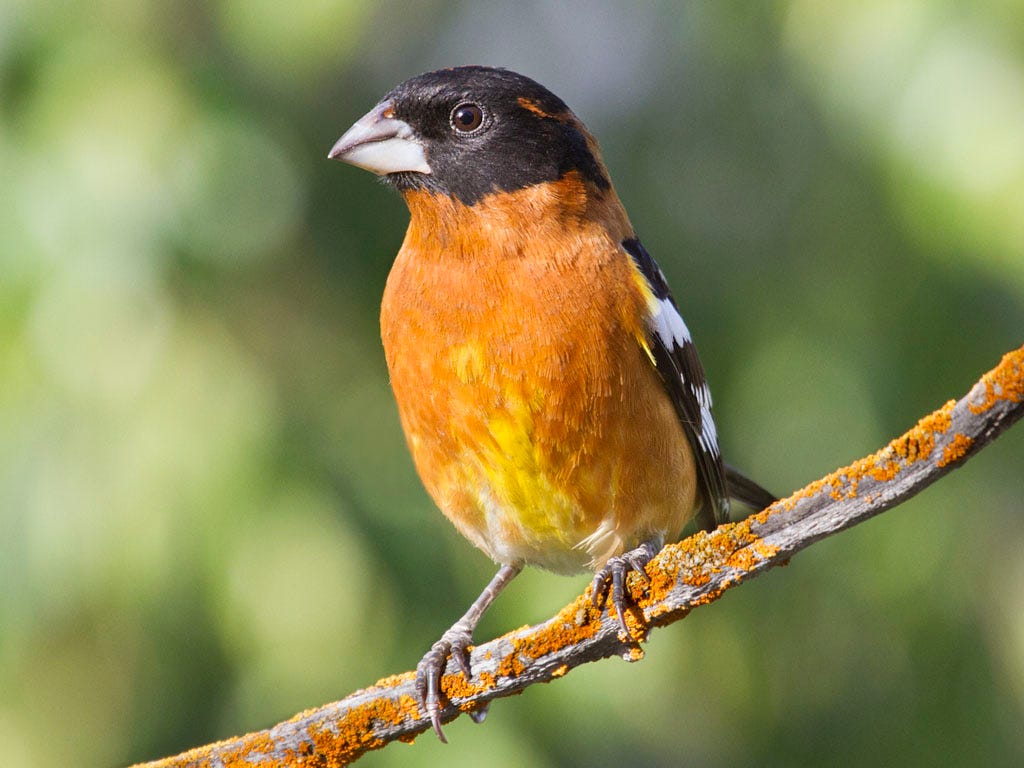
Four a.m. found me lying awake in predawn darkness. As usual, my brain began to spin. Despite the muffled light of a newborn day growing outside the bedroom window, my thoughts began to coalesce around a dark center. Mowing the meadow had become an urgent chore. The orchard didn’t get pruned this winter. The garden here and at home was growing nothing but weeds. My first Mother’s Day without a mother had rushed in and left. The family place we need to sell was still in partial disarray. This afternoon I needed to hurry home and finish preparing to run a meeting. My years to engage in the living world felt suddenly limited. Life seemed to be pressing the life out of me. Remembering my neighbor’s note, I pulled on a jacket and stood on the porch. Listening. The slurred gurgle of Black-headed Grosbeaks streamed from dark conifers. And in the distance the insistent weeping of Swainson’s Thrushes traversed the sepia light of dawn. But they did not sing. I returned to bed and allowed those dark thoughts to whirl until sleep relieved me of their burden.
Sadness is only part of my overall truth this spring. I have had the extraordinary joy of beginning to turn my lifelong fascination with salamanders into a collection of essays illustrated by the lovely artwork of Emily Poole. The finished work will be published with Mountaineers Books. Together, Emily and I have traveled many miles this winter and spring searching beneath untold rocks and rotten logs to bring our shared experience and love of salamanders into this book. Even after a lifetime of looking, this project has taken me to species that have not previously graced my eyes.
All of this salamander hunting has required significant chunks of time and energy. Yet I have been struck by what salamanders can teach us about how to experience the world. They have a remarkably thin skin with which they can breathe, drink, taste, recognize mates, and repel predators. Humans have always admired and tried to emulate the so-called charismatic megafauna. We aspire to having the eyes of a hawk, to soaring like an eagle, to becoming strong as an ox or quick as a cat. We are constantly told that we need to have thick skin to weather the chaos of a harsh and unjust world. Like a rhinoceros. Maybe that’s sometimes true. Nevertheless, a thick skin isolates us emotionally from the world. This separation provides the necessary cover for exploiting one another and our fellow inhabitants on this planet. Perhaps the time has come to emulate the salamanders. To become thin-skinned. To breathe in the world and our true place in the order of everything.
For me, becoming a thin-skinned human is to acknowledge my own darkness. Becoming a thin-skinned human is also to acknowledge my light. The two dapple together in the way that sunlight and shade slow dance on a forest floor. Spending time in this small valley in the Coast Range is a source of joy deeply held. Yet shadows lurk here dating back nearly one and a half centuries. Uncertainty dogs me when this darkness eddies in. How much to tell. Or to whom. Some things must be wrestled within the confines of my own head or occasionally in an extraordinarily trusted relationship (I find that cats are very good listeners). Likewise, there are epiphanies that should not be shared, at least not publicly. Teachers wiser than I have said that too much openness can dilute the magnitude of spiritual discovery.
When I woke again, the dark spaces had shrunk. Spring sunlight poured over the ridge and flooded the meadow. After an egg-and-toast breakfast, I was back on the front porch. A few wispy clouds levitated in the camas sky, perhaps trying to emulate thrush song, encouraging the birds toward their full-throated splendor. Raven wheeled overhead then declined my invitation to drop in. The musky smell of cut grass felt tidy in my nose. A blank page loomed from my journal, and I started to free write. But Wind began to sing in the boughs of the Old Ones on the ridge, and a swirl of air over the backs of my hands caused me to drop my pen and look up. Clouds now filled the sky, cowing Sun into submission. Darkness to light, then back again. The dance continues. The thrushes will sing again soon.
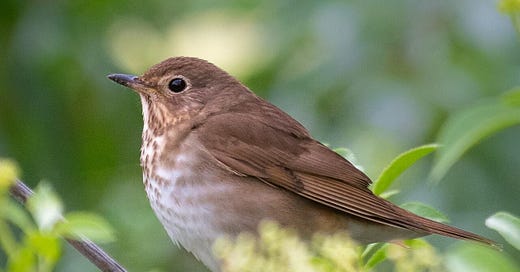



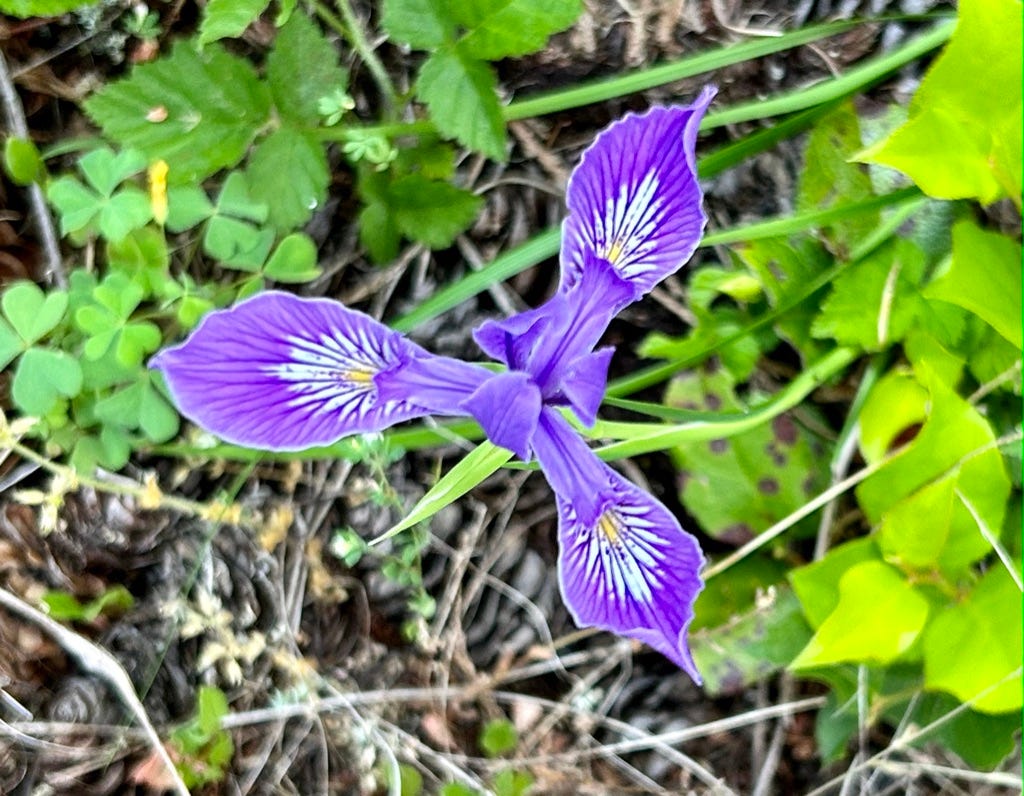
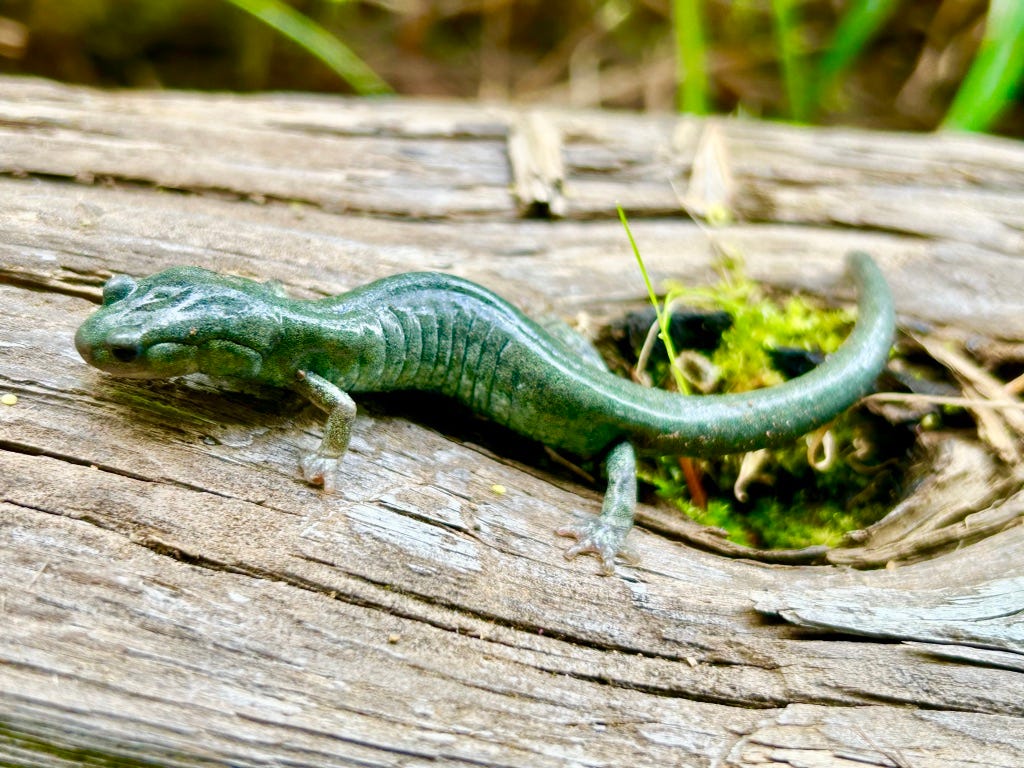
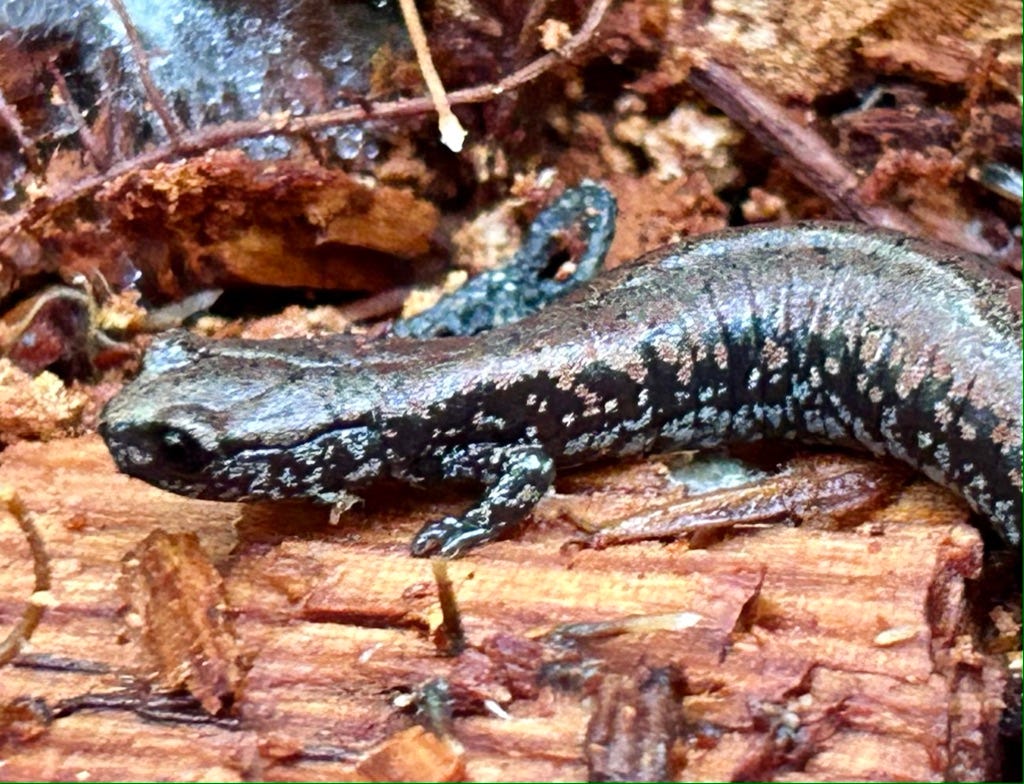
It never ceases to amaze me how your words take me home. Home to Ash Valley, in the Umpqua drainage where my family homesteaded and I grew up. I have your books and hope you plan to publish these recent words in your next one. I always feel like I have been given a gift to carefully unwrap and absorb it's joy each time you post. Once again, I thank YOU!
A sumptuous sensory feast! I can taste the rhubarb cobbler of bird song...love all the juxtapositions and the way you entwine sorry and joy and here is to being thin-skinned breathing in the beauty of this still so miraculous world--even as the sorrow and worry also seeps in. Thank you!